#V.I. Lenin
Text
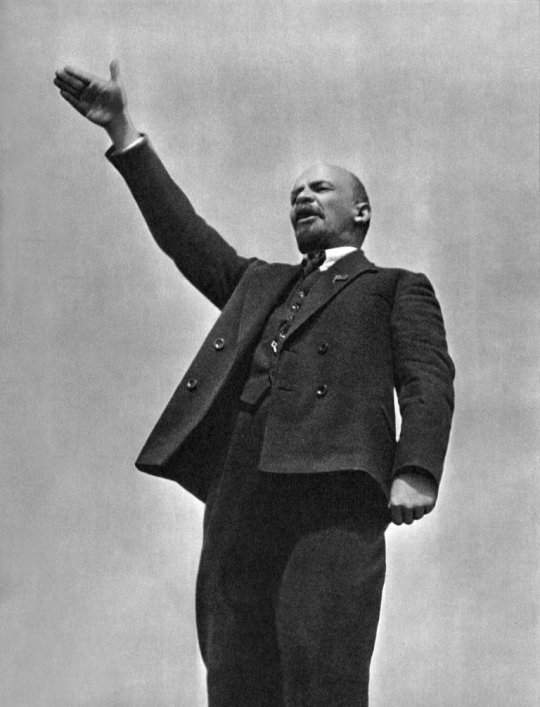
We must not depict socialism as if socialists will bring it to us on a plate all nicely dressed. That will never happen. Not a single problem of the class struggle has ever been solved in history except by violence. When violence is exercised by the working people, by the mass of exploited against the exploiters—then we are for it! And we are not in the least disturbed by the howls of those people who consciously or unconsciously side with the bourgeoisie, or who are so frightened by them, so oppressed by their rule, that they have been flung into consternation at the sight of this unprecedentedly acute class struggle, have burst into tears, forgotten all their premises and demand that we perform the impossible, that we socialists achieve complete victory without fighting against the exploiters and without suppressing their resistance.
-V. I. Lenin, 1918
#Lenin#marxism leninism maoism#MLM#revolutionary#communist#communism#socialism#marxism#revolution#proletariat#V.I. Lenin#Leninism#Marxism-Leninism
1K notes
·
View notes
Note
What flavour of communist and/or gay are you? /Gen
I'm not really sure what this means.
Not to spout clichés or take myself too seriously, but to some extent I think labels confine us within rigid structures which ultimately only serve our enemies. I know it's just a shortcut, but even the fact that you say 'flavour' kinda reiterates the idea that lots of the associated terminology positions us as existing for consumption.
Of course I know language matters. Indeed, I think a disproportionately large amount of leftist in-fighting is down to word choice and communication. More often than not, when anarchists refer to the state and Leninists refer to capital or bourgeois democracy, we're all talking about the same systems of harm and oppression. I also believe that what's most important is what we do, not how we identify.
I actively avoid the 'discourse' surrounding queer terminology. For years in my youth I railed against the word 'bisexual' because I didn't like that it implied I have two distinct sexualities, and for awhile I even called myself 'ambisexual' in an attempt to prompt a deconstruction thereof. But then I decided that I like the colours of the bi flag, which is really all that matters, because it's just aesthetics.
So I guess let me put it this way: I'm a trade union organiser who specifically represents queer union members. I grew up reading Marx, and some of the greatest influences through my adolescence on how I approach the world were Gramsci and Mao, and later Fanon and Butler. I spent a lot of my twenties questioning whether I count as trans, as I have always been very comfortable with both my masculinity and my femininity, but at some point I realised very clearly that the gender I was assigned at birth is not reflected in either.
I very strongly believe in the value of Lenin and Leninism to global struggle; but likewise I have taken a lot from Malatesta, Luxemburg, Adorno, and so on. I also think, while they are to be scrutinised rigorously, there is much to be gained from the likes of Trotsky, Foucault, or Žižek. I am a staunch anti-Zionist, but Memmi nevertheless teaches us a great deal about the plight of the colonised.
I am probably closer to an orthodox Marxist than I am to a Leninist or anarchist, but ultimately I think all this orthodoxy reeks of bourgeois affectation. The questions we should be asking are: who is most impacted by the realities of a given situation, and what are they saying, what do they need? Once upon a time in the west, and certainly still in most cases, this is BIPOC and sexual others, so we read Davis and Feinberg and Öcalan and Ahmed and Tuck and Yang. It is the strength of the revolutionary to adapt to the material conditions at hand, and remain undaunted.
In the end, we have more in common with one another than we have with ruling classes, right? So let us gather together! If this is the final struggle, let each stand in our place.
#Marxism#Antonio Gramsci#Lenin#Judith Butler#Rosa Luxemburg#Angela Davis#Leslie Feinberg#Sara Ahmed#Tuck & Yang#Marx#Karl Marx#V.I. Lenin#Mao Zedong#Mao Tse-Tung#Theodor Adorno#Errico Malatesta#Albert Memmi#Abdullah Öcalan#Eve Tuck#K. Wayne Yang#original#communism#communist#Frantz Fanon#ask
86 notes
·
View notes
Quote
Where the bourgeois economists saw a relation between things (the exchange of one commodity for another) Marx revealed a relation between people. The exchange of commodities expresses the connection between individual producers through the market. Money signifies that the connection is becoming closer and closer, inseparably uniting the entire economic life of the individual producers into one whole. Capital signifies a further development of this connection: man’s labour-power becomes a commodity. The wage-worker sells his labour-power to the owner of land, factories and instruments of labour. The worker spends one part of the day covering the cost of maintaining himself and his family (wages), while the other part of the day he works without remuneration, creating for the capitalist surplus-value, the source of profit, the source of the wealth of the capitalist class.
V.I. Lenin
11 notes
·
View notes
Text
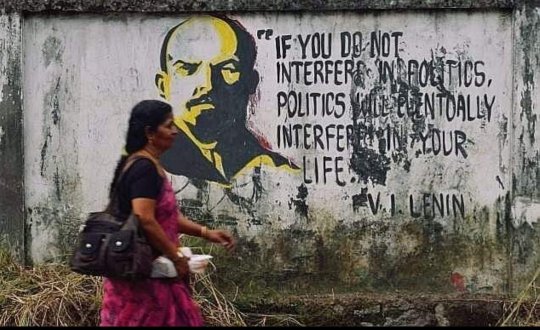
"If you do not interfere in politics, politics will eventually interfere in your life." - V.I. Lenin
Street art in Kerala, India.
Via Friendly Neighborhood Comrade
848 notes
·
View notes
Note
niceys positive anon!! i don't agree with you on everything but you are so clearly like well read and well rounded that you've helped me think through a lot of my own inconsistencies and hypocrises in my own political and social thought, even if i do have slightly different conclusions at times then u (mainly because i believe there's more of a place for idealism and 'mind politics' than u do). anyway this is a preamble to ask if you have recommended reading in the past and if not if you had any recommended reading? there's some obvious like Read Marx but beyond that im always a little lost wading through theory and given you seem well read and i always admire your takes, i wondered about your recs
it's been a while since i've done a big reading list post so--bearing in mind that my specific areas of 'expertise' (i say that in huge quotation marks obvsies i'm just a girlblogger) are imperialism and media studies, here are some books and essays/pamphlets i recommend. the bolded ones are ones that i consider foundational to my politics
BASICS OF MARXISM
friedrich engels, principles of commmunism
friedrich engels, socialism: utopian & scientific
karl marx, the german ideology
karl marx, wage labour & capital
mao zedong, on contradiction
nikolai bukharin, anarchy and scientific communism
rosa luxemburg, reform or revolution?
v.i lenin, left-wing communism: an infantile disorder
v.i. lenin, the state & revolution
v.i. lenin, what is to be done?
IMPERIALISM
aijaz ahmed, iraq, afghanistan, and the imperialism of our time
albert memmi, the colonizer and the colonized
che guevara, on socialism and internationalism (ed. aijaz ahmad)
eduardo galeano, the open veins of latin america
edward said, orientalism
fernando cardoso, dependency and development in latin america
frantz fanon, black skin, white masks
frantz fanon, the wretched of the earth
greg grandin, empire's workshop
kwame nkrumah, neocolonialism, the last stage of imperialism
michael parenti, against empire
naomi klein, the shock doctrine
ruy mauro marini, the dialectics of dependency
v.i. lenin, imperialism: the highest stage of capitalism
vijay prashad, red star over the third world
vincent bevins, the jakarta method
walter rodney, how europe underdeveloped africa
william blum, killing hope
zak cope, divided world divided class
zak cope, the wealth of (some) nations
MEDIA & CULTURAL STUDIES
antonio gramsci, the prison notebooks
ed. mick gidley, representing others: white views of indigenous peoples
ed. stuart hall, representation: cultural representations and signifying pratices
gilles deleuze & felix guattari, capitalism & schizophrenia
jacques derrida, margins of philosophy
jacques derrida, speech and phenomena
michael parenti, inventing reality
michel foucault, disicipline and punish
michel foucault, the archeology of knowledge
natasha schull, addiction by design
nick snricek, platform capitalism
noam chomsky and edward herman, manufacturing consent
regis tove stella, imagining the other
richard sennett and jonathan cobb, the hidden injuries of class
safiya umoja noble, algoriths of oppression
stuart hall, cultural studies 1983: a theoretical history
theodor adorno and max horkheimer, the culture industry
walter benjamin, the work of art in the age of mechanical reproduction
OTHER
angela davis, women, race, and class
anna louise strong, cash and violence in laos and vietnam
anna louise strong, the soviets expected it
anna louise strong, when serfs stood up in tibet
carrie hamilton, sexual revolutions in cuba
chris chitty, sexual hegemony
christian fuchs, theorizing and analysing digital labor
eds. jules joanne gleeson and elle o'rourke, transgender marxism
elaine scarry, the body in pain
jules joanne gleeson, this infamous proposal
michael parenti, blackshirts & reds
paulo freire, pedagogy of the oppressed
peter drucker, warped: gay normality and queer anticapitalism
rosemary hennessy, profit and pleasure
sophie lewis, abolish the family
suzy kim, everyday life in the north korean revolution
walter rodney, the russian revolution: a view from the third world
#ask#avowed inframaterialist reading group#i obviously do not 100% agree with all the points made by and conclusions reached by these works#but i think they are valuable and useful to read
925 notes
·
View notes
Text
When Marxists say that certain groups, are adventurist, they have in mind the very definite and specific social and historical features of a phenomenon, one that every class-conscious worker should be familiar with.
The history of Russian Social-Democracy teems with tiny groups, which sprang up for an hour, for several months, with no roots whatever among the masses (and politics without the masses are adventurist politics), and with no serious and stable principles. In a petty-bourgeois country, which is passing through a historical period of bourgeois reconstruction, it is inevitable that a motley assortment of intellectuals should join the workers, and that these intellectuals should attempt to form all kinds of groups, adventurist in character in the sense referred to above.
— V.I. Lenin, Adventurism, 1914
Let us go over to the second point, the question of terrorism.
In their defence of terrorism, which the experience of the Russian revolutionary movement has so clearly proved to be ineffective, the Socialist-Revolutionaries are talking themselves blue in the face in asseverating that they recognise terrorism only in conjunction with work among the masses, and that therefore the arguments used by the Russian Social-Democrats to refute the efficacy of this method of struggle (and which have indeed been refuted for a long time to come) do not apply to them. [...]
We are not repeating the terrorists’ mistakes and are not diverting attention from work among the masses, the Socialist-Revolutionaries assure us, and at the same time enthusiastically recommend to the Party acts such as Balmashov’s assassination of Sipyagin, although everyone knows and sees perfectly well that this act was in no way connected with the masses and, moreover, could not have been by reason of the very way in which it was carried out—that the persons who committed this terrorist act neither counted on nor hoped for any definite action or support on the part of the masses. In their naïveté, the Socialist-Revolutionaries do not realise that their predilection for terrorism is causally most intimately linked with the fact that, from the very outset, they have always kept, and still keep, aloof from the working-class movement, without even attempting to become a party of the revolutionary class which is waging its class struggle. [...]
The first thing that strikes the eye is the words: “we advocate terrorism, not in place of work among the masses, but precisely for and simultaneously with that work.” [...]
The day “when the working people will emerge from the shadows” and “the mighty popular wave will shatter the iron gates to smithereens”—“alas!” (literally, “alas!”) “is still a long way off, and it is frightful to think of the future toll of victims!” Do not these words “alas, still a long way off” reflect an utter failure to under stand the mass movement and a lack of faith in it? Is not this argument meant as a deliberate sneer at the fact that the working people are already beginning to rise? And, finally, even if this trite argument were just as well-founded as it is actually stuff and nonsense, what would emerge from it in particularly bold relief would be the inefficacy of terrorism, for without the working people all bombs are power less, patently powerless. [...]
This fabulous argument, which we are convinced is destined to become notorious, is by no means simply a curiosity. No, it is instructive because, through a sweeping reduction to an absurdity, it reveals the principal mistake of the terrorists, which they share with the “economists” (perhaps one might already say, with the former representatives of deceased “economism”?). This mistake, as we have already pointed out on numerous occasions, consists in the failure to understand the basic defect of our movement. Because of the extremely rapid growth of the movement, the leaders lagged behind the masses, the revolutionary organisations did not come up to the level of the revolutionary activity of the proletariat, were incapable of marching on in front and leading the masses. That a discrepancy of this sort exists cannot be doubted by any conscientious person who has even the slightest acquaintance with the movement. And if that is so, it is evident that the present-day terrorists are really “economists” turned inside out, going to the equally foolish but opposite extreme. At a time when the revolutionaries are short of the forces and means to lead the masses, who are already rising, an appeal to resort to such terrorist acts as the organisation of attempts on the lives of ministers by individuals and groups that are not known to one another means, not only thereby breaking off work among the masses, but also introducing downright disorganisation into that work. [...]
Nor does the leaflet eschew the theory of excitative terrorism. “Each time a hero engages in single combat, this arouses in us all a spirit of struggle and courage,” we are told. But we know from the past and see in the present that only new forms of the mass movement or the awakening of new sections of the masses to independent struggle really rouses a spirit of struggle and courage in all. Single combat however, inasmuch as it remains single combat waged by the Balmashovs, has the immediate effect of simply creating a short-lived sensation, while indirectly it even leads to apathy and passive waiting for the next bout. [...]
This very point is explained in No. 8 of Revolutsionnaya Rossiya, which declares that “it is easy to write and speak” of armed demonstrations “as a matter of the vague and distant future,” “but up till now all this talk has been merely of a theoretical nature.” How well we know this Language of people who are free of the constraint of firm socialist convictions, of the burdensome experience of each and every kind of popular movement! They confuse immediately tangible and sensational results with practicalness. To them the demand to adhere steadfastly to the class standpoint and to maintain the mass nature of the movement is “vague” “theorising.” [...]
Demonstrations begin— and blood thirsty words, talk about the beginning of the end, flow from the lips of such people. The demonstrations halt— their hands drop helplessly, and before they have had time to wear out a pair of boots they are already shouting: “The people, alas, are still a long way off....” Some new outrage is perpetrated by the tsar’s henchmen—and they demand to be shown a “definite” measure that would serve as an exhaustive reply to that particular outrage, a measure that would bring about an immediate “transference of strength,” and they proudly promise this transference! These people do not understand that this very promise to “transfer” strength constitutes political adventurism, and that their adventurism stems from their lack of principle. [...]
Anyone who really carries on his revolutionary work in conjunction with the class struggle of the proletariat very well knows, sees and feels what vast numbers of immediate and direct demands of the proletariat (and of the sections of the people capable of supporting the latter) remain unsatisfied. He knows that in very many places, throughout vast areas, the working people are literally straining to go into action, and that their ardour runs to waste because of the scarcity of literature and leadership, the lack of forces and means in the revolutionary organisations. And we find ourselves—we see that we find our selves—in the same old vicious circle that has so long hemmed in the Russian revolution like an omen of evil. On the one hand, the revolutionary ardour of the insufficiently enlightened and unorganised crowd runs to waste. On the other hand, shots fired by the “elusive individuals” who are losing faith in the possibility of marching in formation and working hand in hand with the masses also end in smoke.
— V.I. Lenin, Revolutionary Adventurism, 1902
183 notes
·
View notes
Note
"Feuerbach was right when, in reply to those who defended religion on the ground that it consoles the people, he indicated the reactionary significance of consolation: whoever consoles the slave instead of arousing him to rise up against slavery is aiding the slaveowner." -V.I. Lenin
“No you see because poor people like religion that means it’s good from a Marxist pov”- stupid people
123 notes
·
View notes
Text
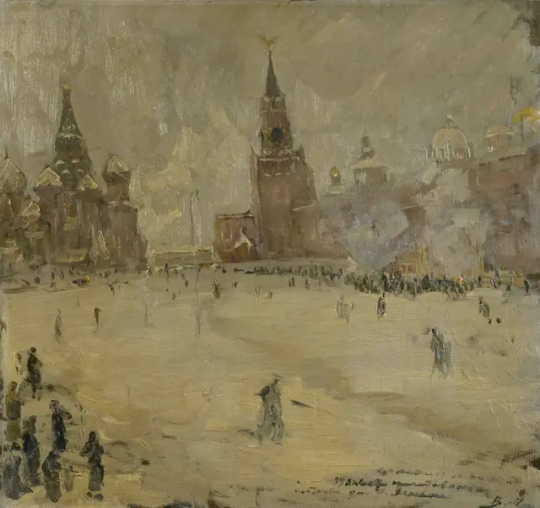
Pavel Alexandrovich Radimov - On Red Square on the day of the funeral of V.I. Lenin (1924)
105 notes
·
View notes
Note
True communism can only be achieved by slapping Lenin’s bald head while hitting it from the back
Do incredible things not just to her heart but her PRO-state as well
The State and Revolution, V.I. Lenin
21 notes
·
View notes
Text

В.И. Ленин в Шушенском (Ледоход на Енисее) | V.I. Lenin in Shushenskoye (Drift-Ice on the Yenisei);
Aleksandr Kozlovsky, 1967.
198 notes
·
View notes
Text
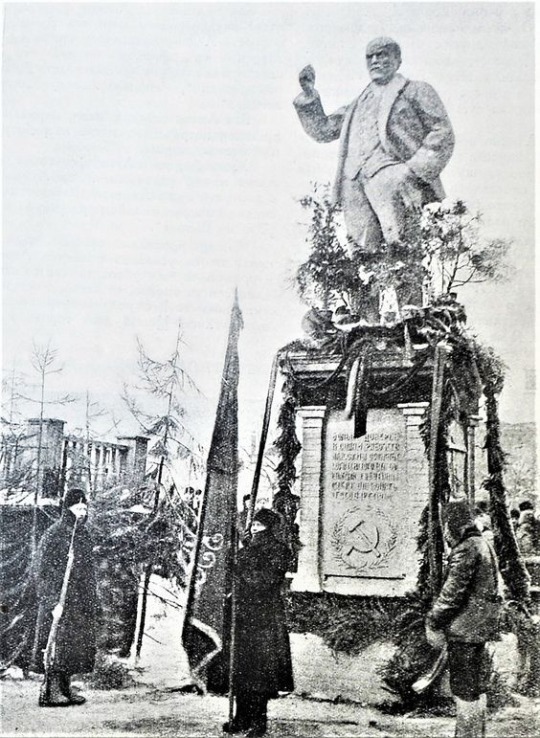
March, 1924: The monument in Noginsk is one of the first monuments to V.I. Lenin.
181 notes
·
View notes
Text
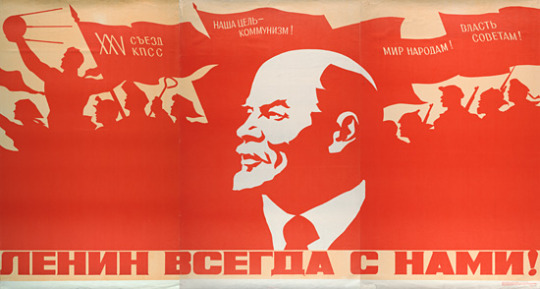

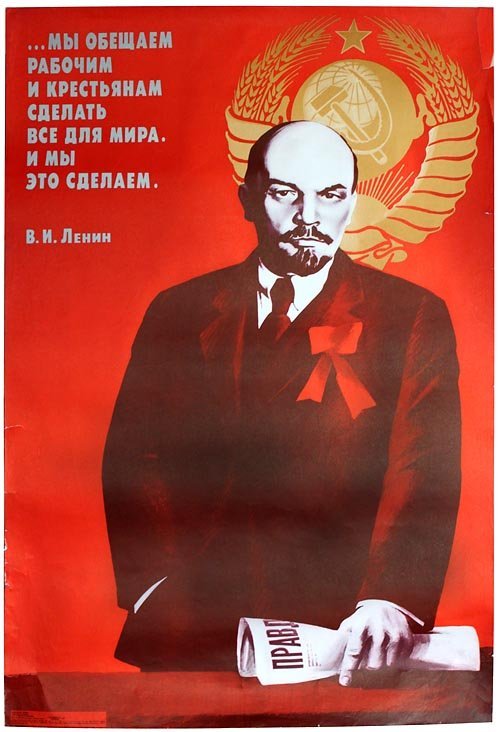
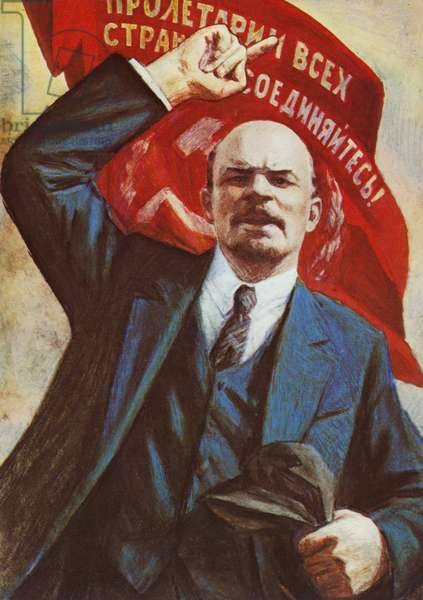
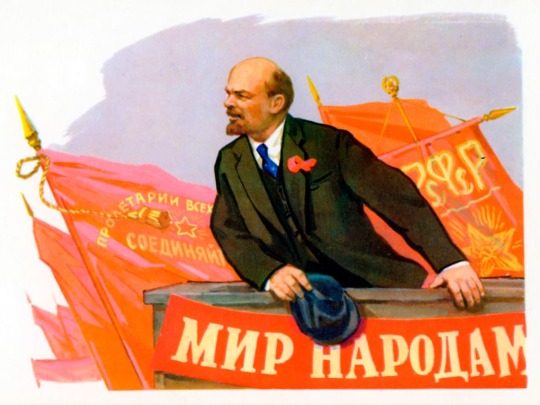
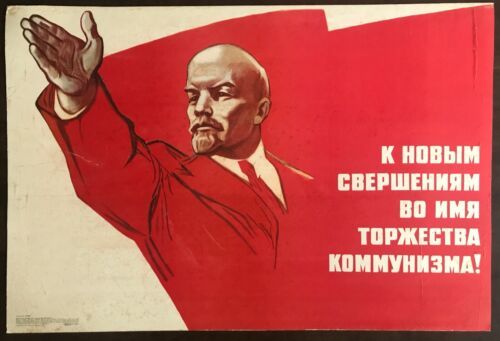
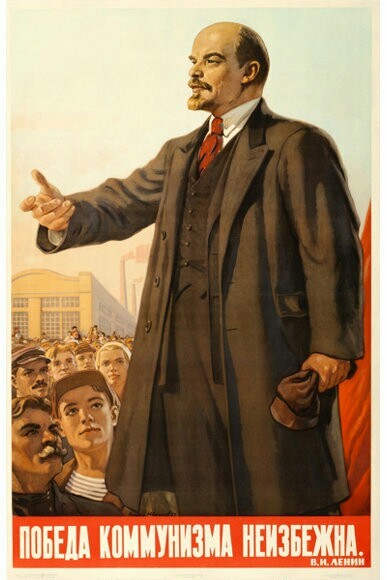
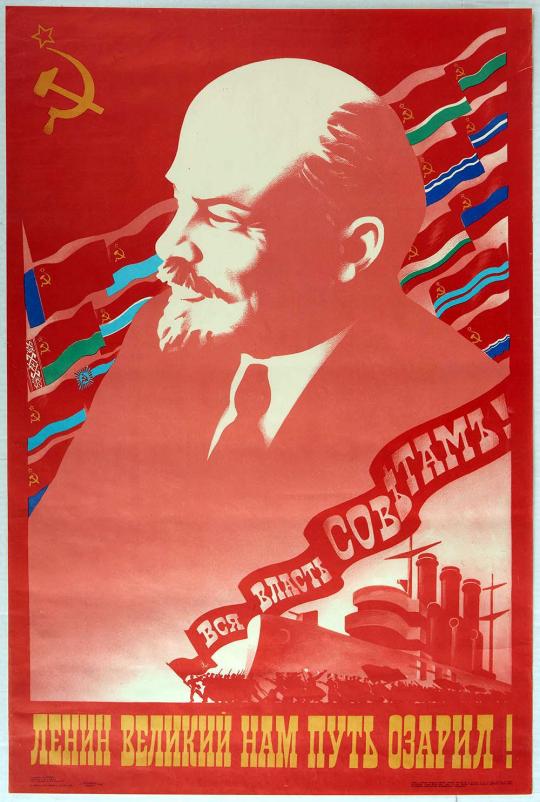
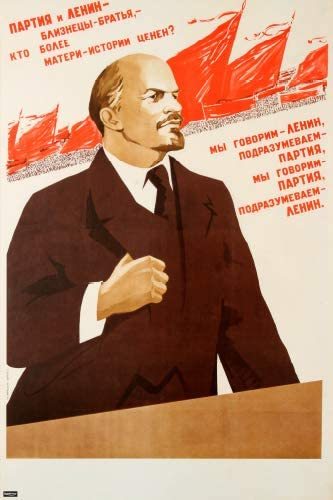

Ленин жил, Ленин жив, Ленин будет жить!
#Lenin#V.I. Lenin#Vladimir Ilyich Ulyanov#Leninism#Leninist#Marxism-Leninism#Marxist-Leninist#original#moodboard
87 notes
·
View notes
Quote
It follows, therefore, that workers who place political unity with ‘their own’ bourgeoisie above complete unity with the proletariat of all nations, are acting against their own interests, against the interests of socialism and against the interests of democracy.
V.I. Lenin
6 notes
·
View notes
Text
"We see that the demand put forward by the Social-Democrats—the complete abolition of all indirect taxes and their replacement by a real progressive income tax and not one that merely plays at it—is fully realisable. Such a measure would, without affecting the foundations of capitalism, give tremendous immediate relief to nine-tenths of the population; and, secondly, it would serve as a gigantic impetus to the development of the productive forces of society by expanding the home market and liberating the state from the nonsensical hindrances to economic life that have been introduced for the purpose of levying indirect taxes.
The capitalists’ advocates usually point to the difficulty of assessing big incomes. Actually, with banks, savings societies, etc., at their present level of development, this is a purely imaginary difficulty. The one difficulty is the class-avarice of the capitalists and the existence of undemocratic institutions in the political structure of bourgeois states." - V.I. Lenin, Capitalism and Taxation, 1913
15 notes
·
View notes
Text
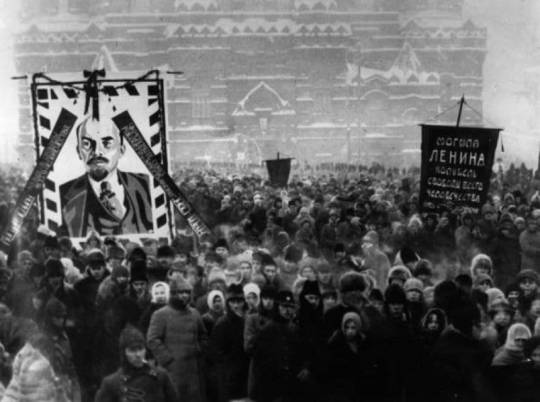
January 21, 1924: Death of Comrade V.I. Lenin, founder of the Bolshevik Party, leader of Russia’s socialist revolution, great teacher of the world working class.
234 notes
·
View notes